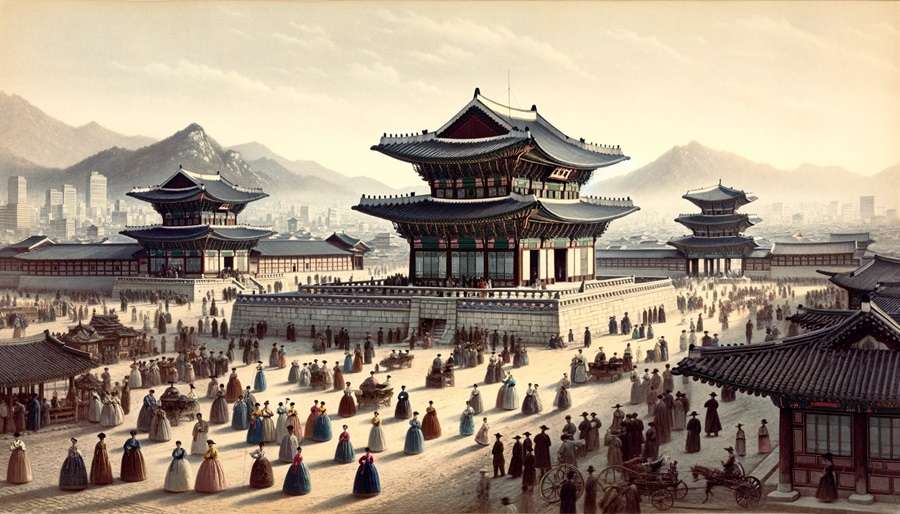
The Dawn of the Korean Empire
The inception of the Korean Empire in 1897 was a direct response to the increasing influence of foreign powers in the region. Prior to this, Korea, under the Joseon Dynasty, faced mounting pressure from Japan and Russia, both vying for control in East Asia. In an assertive move to safeguard its independence, King Gojong proclaimed the establishment of the Korean Empire, symbolizing a break from the past and a step towards modern sovereignty.
Striving for Modernization and Reform
King Gojong, the first emperor, embarked on a path of modernization and reform, aiming to strengthen Korea’s standing among its powerful neighbors. This era witnessed significant developments in infrastructure, education, and the military. The construction of Gyeongbokgung Palace’s modern structures, the establishment of the Royal Guards, and the introduction of a Western-style education system were among the many reforms. These changes, though significant, were met with internal resistance and external interference, particularly from Japan and Russia.
Cultural Renaissance and National Identity
Amidst these political changes, the Korean Empire also experienced a cultural renaissance. Art, literature, and music flourished, often reflecting the nation’s aspirations for autonomy and progress. This period saw the revival of traditional arts, while also embracing Western influences, creating a unique blend that enriched Korea’s cultural tapestry. The assertion of a Korean identity during this era laid the groundwork for the country’s cultural resilience in the face of future challenges.
The Twilight of Independence
Unfortunately, the Korean Empire’s aspirations for full independence were short-lived. The Russo-Japanese War (1904-1905) and the subsequent Eulsa Treaty in 1905, effectively placed Korea under Japanese control. By 1910, Korea was formally annexed by Japan, marking the end of the Korean Empire and the beginning of a long period of colonial rule.
Legacy and Historical Significance
The Korean Empire, though brief, left an indelible mark on Korea’s historical trajectory. It was a period of assertive sovereignty, cultural reawakening, and the quest for modernization. Today, it serves as a poignant reminder of Korea’s enduring spirit and its continuous struggle for self-determination.
In conclusion, the Korean Empire era, nestled between dynastic rule and colonial subjugation, remains a testament to Korea’s resilience and its unyielding quest for independence. Its legacy continues to inspire and inform Korea’s path in the modern world, making it an essential chapter in the annals of Korean history.
The Treaty of Ganghwa (1876): The Dawn of Korean Modernization and Japanese Influence
Hi, I’m [jeybee]. As a long-time resident of Seoul, I’m passionate about uncovering the authentic, everyday magic of Korea. This blog is my way of sharing my favorite spots, tips, and cultural insights with you, beyond the usual tourist traps.

